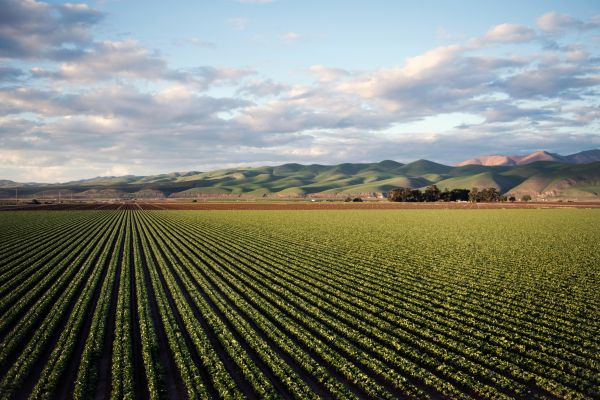Introduction
Sustainable agriculture is gaining momentum in Africa as a vital approach to addressing the continent's food security, environmental sustainability, and economic development challenges. With a rapidly growing population and increasing pressures on natural resources, sustainable farming practices offer a pathway to a more resilient and prosperous future. This article examines the importance of sustainable agriculture in Africa, the benefits it brings, the challenges faced, and the future prospects for the sector.
The Need for Sustainable Agriculture
Africa's agriculture sector is facing multiple challenges, including soil degradation, water scarcity, climate change, and a growing population that demands more food. Traditional farming practices often lead to overuse of resources and environmental degradation. Sustainable agriculture aims to address these issues by promoting practices that conserve resources, enhance soil health, and increase productivity in a sustainable manner.
Benefits of Sustainable Agriculture
Food Security: Sustainable agriculture practices, such as crop rotation, organic farming, and agroforestry, can increase crop yields and improve food security. These practices enhance soil fertility and reduce dependency on chemical inputs, leading to healthier and more productive crops. According to the Food and Agriculture Organization (FAO), sustainable agriculture is crucial for achieving food security.
Environmental Protection: Sustainable farming methods help protect the environment by reducing soil erosion, conserving water, and enhancing biodiversity. Techniques such as conservation tillage, cover cropping, and integrated pest management minimize the negative impacts of agriculture on the environment. The World Wildlife Fund (WWF) emphasizes the role of sustainable agriculture in environmental conservation.
Economic Development: Sustainable agriculture can contribute to economic development by creating jobs, increasing incomes, and supporting rural communities. By adopting sustainable practices, farmers can reduce costs, increase yields, and access new markets for organic and sustainably produced products. The African Development Bank (AfDB) highlights the economic benefits of sustainable agriculture in Africa.
Climate Resilience: Sustainable agriculture practices can enhance the resilience of farming systems to climate change. Practices such as agroecology and climate-smart agriculture help farmers adapt to changing weather patterns, reduce greenhouse gas emissions, and sequester carbon in soils. The CGIAR Research Program on Climate Change, Agriculture and Food Security (CCAFS) focuses on developing climate-resilient agricultural practices.
Challenges of Sustainable Agriculture
Despite its benefits, sustainable agriculture in Africa faces several challenges:
Lack of Awareness and Education: Many farmers lack awareness and knowledge of sustainable farming practices. Education and extension services are needed to promote the adoption of these practices.
Access to Resources: Smallholder farmers often lack access to the resources needed for sustainable farming, such as quality seeds, organic fertilizers, and appropriate technology. Improving access to these resources is crucial for the success of sustainable agriculture.
Market Access: Farmers practicing sustainable agriculture may face challenges in accessing markets for their products. Developing value chains and market linkages for sustainably produced goods can help overcome this barrier.
Policy Support: Supportive policies and incentives are needed to promote sustainable agriculture. Governments and policymakers must create an enabling environment for sustainable farming practices to thrive.
Future Prospects of Sustainable Agriculture
The future of sustainable agriculture in Africa looks promising, with increasing recognition of its importance and potential. Several factors are driving the growth of sustainable agriculture:
Innovation and Technology: Advances in agricultural technology and innovation are providing new tools and solutions for sustainable farming. Precision agriculture, digital platforms, and biotechnology are helping farmers improve efficiency and sustainability.
International Support: International organizations and development partners are increasingly supporting sustainable agriculture initiatives in Africa. Programs and funding from organizations like the FAO, AfDB, and the International Fund for Agricultural Development (IFAD) are driving the adoption of sustainable practices.
Consumer Demand: Growing consumer demand for organic and sustainably produced food is creating new market opportunities for African farmers. This trend is encouraging more farmers to adopt sustainable practices.
Climate Action: The global focus on climate action is highlighting the role of sustainable agriculture in mitigating climate change. International climate agreements and initiatives are supporting the transition to sustainable farming.
Conclusion
Sustainable agriculture is essential for addressing Africa's food security, environmental sustainability, and economic development challenges. By adopting sustainable farming practices, African farmers can improve productivity, protect natural resources, and build resilience to climate change. Despite the challenges, the future of sustainable agriculture in Africa is bright, with growing support from governments, international organizations, and consumers. By investing in sustainable agriculture, Africa can achieve a more resilient and prosperous future.










